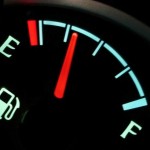 We’ve all heard tips and tricks to nudge up the miles per gallon we get from our vehicle – from miracle pills to drafting to car repair. But what advice actually helps, and what is just an urban myth?
We’ve all heard tips and tricks to nudge up the miles per gallon we get from our vehicle – from miracle pills to drafting to car repair. But what advice actually helps, and what is just an urban myth?
1. Gas additives and gadgets to boost fuel.
Every so often, a slick company offers a “miracle solution” like a pill or additive to ramp up your miles per gallon. In reality, most of these tricks do NOTHING to improve your mileage, some even put your engine at risk.
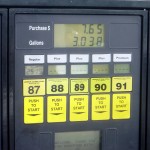 The most common one we see in our shop is Octane Boosters. The only way these chemical solutions work is if you’re putting in the wrong octane of gasoline to begin. Raising the octane with (potentially harmful) chemicals doesn’t improve your gas mileage. Plain and simple. Rather than choosing the cheapest gas and investing in expensive chemicals, save yourself the time, money, and risk – buy the right gasoline and avoid octane boosters.
The most common one we see in our shop is Octane Boosters. The only way these chemical solutions work is if you’re putting in the wrong octane of gasoline to begin. Raising the octane with (potentially harmful) chemicals doesn’t improve your gas mileage. Plain and simple. Rather than choosing the cheapest gas and investing in expensive chemicals, save yourself the time, money, and risk – buy the right gasoline and avoid octane boosters.
2. Leave your gas tank half full.
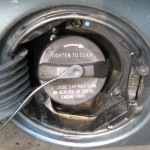 The idea behind this practice is that keeping a higher volume of gasoline in the tank prevents evaporation within the tank. However, modern cars are designed to keep fuel vapors inside the tank. The bigger issue for evaporating gasoline is your gas cap. If your gas cap doesn’t seal tightly, gas can slowly evaporate around the cap reducing your mpg. Your gas dollars literally evaporate into thin air!
The idea behind this practice is that keeping a higher volume of gasoline in the tank prevents evaporation within the tank. However, modern cars are designed to keep fuel vapors inside the tank. The bigger issue for evaporating gasoline is your gas cap. If your gas cap doesn’t seal tightly, gas can slowly evaporate around the cap reducing your mpg. Your gas dollars literally evaporate into thin air!
Gas caps are inexpensive and should be replaced at least every 4 years. The seal inside the gas cap becomes worn with age, increasing your risk of leaks and evaporation. Have it tested at our shop – stop by or call (701) 746-6790.
 3. Empty your trunk to save fuel.
3. Empty your trunk to save fuel.
While it’s a good idea to keep a 50 lb. bag of cat litter in your trunk for winter emergencies, you should get rid of that extra weight in the spring! 100 lbs. costs a 1-2% decrease in gasoline usage.
So look through your trunk, get rid of the dead weight you don’t need to haul around, and get better gas mileage.
4. Drafting behind larger vehicles can help save gas.
The physics is straightforward – following closely behind a large semi reduces the air resistance and drag on your vehicle. The theory is sound, but on the road it is extremely dangerous! The popular show Mythbusters tested this. In order to see worthwhile effects on your mpg, you have to be really close to a really big truck – don’t do it! Stay safe, and back off. Saving a few pennies on gasoline isn’t worth risking your life and safety.
Instead, slow down! Smooth acceleration can do great things for your mileage. If you have a lead foot, try to hold back. And always consider the recommendation for safe following – stay far enough behind that the driver can see you and you have enough time to react.
5. Use Cruise Control for the best mpg.
Maintaining a consistent driving speed can help improve your mileage by preventing twitchy acceleration. Cruise control can be a great way to achieve this! But it is most effective on flat roads. In most cases, seeing and anticipating a hill by increasing speed slowly and ahead of time is more beneficial than letting your cruise control accelerate faster at the last minute.
Again, try to ease up on the gas pedal. Accelerate slowly to avoid wasting extra gasoline, and maintain a consistent speed whenever possible.
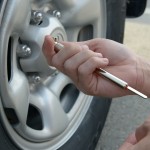 6. Inflate your tires.
6. Inflate your tires.
Again, it’s simple physics – the more evenly your tires meet the road, the less resistance you’ll experience. Less resistance means better economy and mileage! Your engine doesn’t have to work so hard to move the vehicle along the road and you’ll save gas!
Check your tire pressure every time you fill up your tank at the gas station and keep them inflated to the proper maximum PSI. Regular tire rotation and alignment services will keep your tires meeting the road perfectly even.
Having a properly maintained vehicle can do great things for your gas mileage! Everything from your air filter to your shocks and struts can bring down your fuel efficiency – give our team of certified technicians a call at (701) 746-6790 to schedule your next inspection. Stop paying extra at the pump and reclaim your missing mileage!



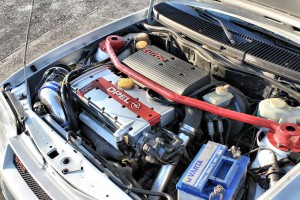 Just as important, the on-board computer can alert you to potential problems with your vehicle. When one of the sensors indicate a problem, the computer can trigger a warning light or the “Check Engine” light to let you know something has gone wrong.
Just as important, the on-board computer can alert you to potential problems with your vehicle. When one of the sensors indicate a problem, the computer can trigger a warning light or the “Check Engine” light to let you know something has gone wrong.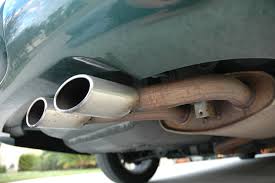 So what does the exhaust system do?
So what does the exhaust system do?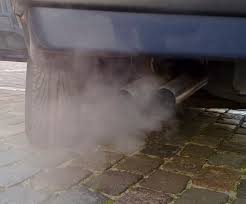 Corrosion or loose connections can create
Corrosion or loose connections can create 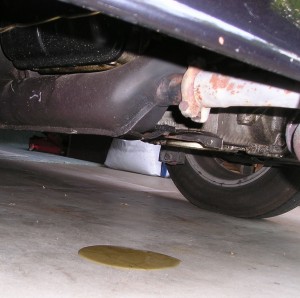 The slippery puddle underneath your car means more than just a stain on your driveway. An oil leak can indicate a bigger issue, and left unattended can lead to serious problems for your engine.
The slippery puddle underneath your car means more than just a stain on your driveway. An oil leak can indicate a bigger issue, and left unattended can lead to serious problems for your engine.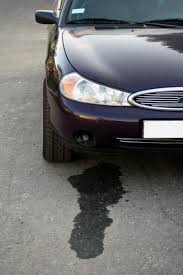 If you’ve recently had an oil change, the problem may be as simple as a loose drain plug. It needs to be replaced properly after every oil change, so make sure it is tight and not cracked. The oil filter also needs to be replaced with every oil change. Check to make sure the oil filter is secured, tight, and not leaking.
If you’ve recently had an oil change, the problem may be as simple as a loose drain plug. It needs to be replaced properly after every oil change, so make sure it is tight and not cracked. The oil filter also needs to be replaced with every oil change. Check to make sure the oil filter is secured, tight, and not leaking. We’ve all heard tips and tricks to nudge up the miles per gallon we get from our vehicle – from miracle pills to drafting to car repair. But what advice actually helps, and what is just an urban myth?
We’ve all heard tips and tricks to nudge up the miles per gallon we get from our vehicle – from miracle pills to drafting to car repair. But what advice actually helps, and what is just an urban myth? The most common one we see in our shop is Octane Boosters. The only way these chemical solutions work is if you’re putting in the wrong octane of gasoline to begin. Raising the octane with (potentially harmful) chemicals doesn’t improve your gas mileage. Plain and simple. Rather than choosing the cheapest gas and investing in expensive chemicals, save yourself the time, money, and risk – buy the right gasoline and avoid octane boosters.
The most common one we see in our shop is Octane Boosters. The only way these chemical solutions work is if you’re putting in the wrong octane of gasoline to begin. Raising the octane with (potentially harmful) chemicals doesn’t improve your gas mileage. Plain and simple. Rather than choosing the cheapest gas and investing in expensive chemicals, save yourself the time, money, and risk – buy the right gasoline and avoid octane boosters. The idea behind this practice is that keeping a higher volume of gasoline in the tank prevents evaporation within the tank. However, modern cars are designed to keep fuel vapors inside the tank. The bigger issue for evaporating gasoline is your gas cap. If your gas cap doesn’t seal tightly, gas can slowly evaporate around the cap reducing your mpg. Your gas dollars literally evaporate into thin air!
The idea behind this practice is that keeping a higher volume of gasoline in the tank prevents evaporation within the tank. However, modern cars are designed to keep fuel vapors inside the tank. The bigger issue for evaporating gasoline is your gas cap. If your gas cap doesn’t seal tightly, gas can slowly evaporate around the cap reducing your mpg. Your gas dollars literally evaporate into thin air! 3. Empty your trunk to save fuel
3. Empty your trunk to save fuel 6. Inflate your tires.
6. Inflate your tires. 